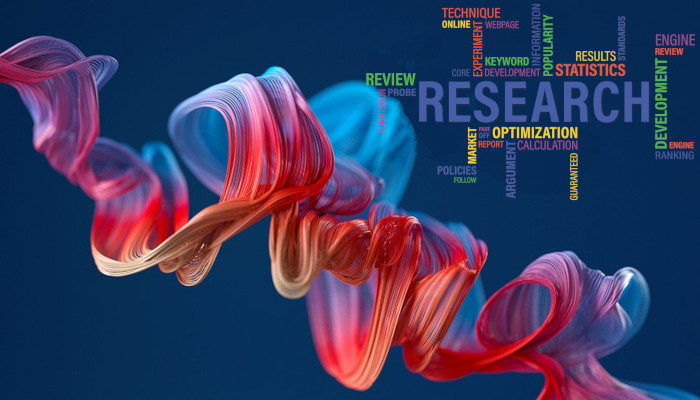
Experimenting with Creative Praxis: Research through Arts Practices
How can artistic practices inform focused research and how can research transform art practices?
Synopsis: Starting with a keynote address from Dr Soultari Amin Farid, President, DIAN Dancers, and Founding Member of Arki-Gen, a collective promoting Southeast Asian performing arts, the seminar will delve into challenges and opportunities for creative artistic practices as a platform for academic research.
Seminar Series: This event is part of the seminar series ‘Glocal’ Agenda in the Arts Management Research: Interrogating, Redefining and Challenging Traditional Research Canons.
This event is free and open to the public.
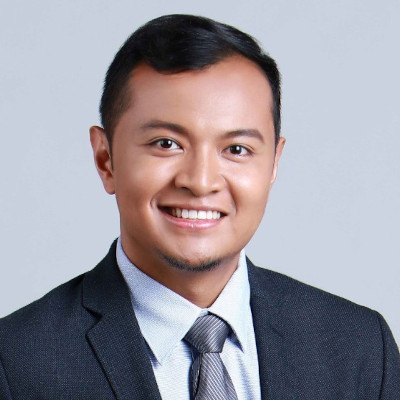
Noramin Farid
Keynote Speaker
Dr Noramin Farid – or Soultari Amin Farid, as he’s better known – trained in Malay dance with Perkumpulan Seni. He is a choreographer, arts educator and researcher and was the Joint-Artistic Director of Bhumi Collective (2017-2022), a multidisciplinary performing arts and producing company. Amin is the curator of an online portal, ARKITARI, which documents maritime Southeast Asian dances. He is also the current president of a dance organisation, DIAN Dancers, and the founding member of Arki-Gen, a collective focused on promoting discourse and research about Southeast Asian performing arts. He is a recipient of the ASEAN-India Youth Award (2018), Singapore Youth Award (2017), National Arts Council Scholarship (2017) and Goh Chok Tong Mendaki Youth Promise Award (2016). He holds a PhD in Theatre, Drama and Dance Studies from Royal Holloway, University of London, UK. As an arts practitioner-researcher, his works interrogate the normative notions of class, ethnicity, identity and gender.
Unearthing Potentialities
This keynote is a reflection of Dr Noramin Farid’s decade-old creative practice as a dance creator and dramaturg working collaboratively in interdisciplinary projects with artists from other disciplines, practice research endeavours and his explorations with communities in the Malay world. His background as a Malay dancer and development as an artist-scholar of maritime Southeast Asian dances has given him the opportunity to dig deeper into the roots and the diversity of the movement systems in the region. Working from an investigation of Malay dance as a practice of potentialities, Noramin demonstrates how his approach has opened new pathways of thinking, embodying and imagining. He shares his various works as case studies wherein he has experimented with different modalities, narratives and technology.
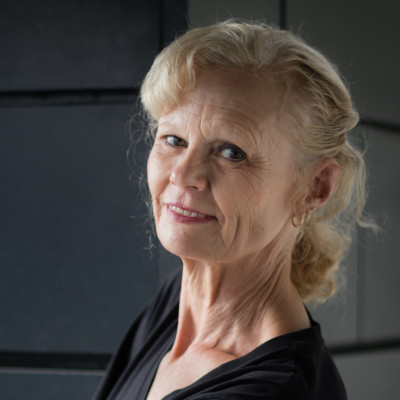
Stephanie Burridge
Moderator
Dr Stephanie Burridge is a choreographer, performer and dance writer and Series Editor for two Routledge anthology collections Celebrating Dance in Asia and the Pacific including books on Cambodia, India, Malaysia, Taiwan, Australia, Singapore, the South Pacific, North India and Thailand (in press); and Perspectives on Dance, Young People and Change, co-editor Charlotte Svendler Nielsen, Series Foreword by Sir Ken Robinson (Dance Education Around the World, Dance Access and Inclusion, and Dancing Across Borders). She edited the Routledge Companion for Dance in Asia and the Pacific: Platforms for Change (2021) and co-authored Choreographic Basics with Jenny Roche (2022). Her current choreographic and research focus is on senior artists with a new Routledge anthology Dance On! Dancing Through Life released in May 2023. Her research and choreographic projects have been supported by the Australia Council, Arts ACT, Singapore International Foundation and the National Arts Council Singapore. Stephanie is a research consultant at LASALLE College of the Arts.
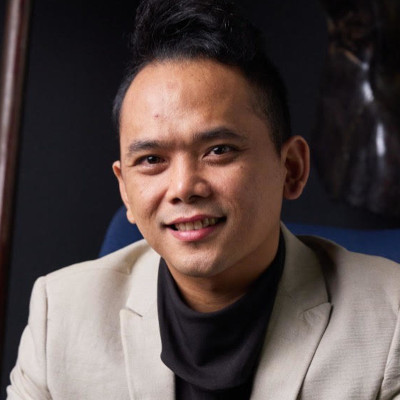
Fairul Zahid
Panelist
Fairul Zahid holds an MFA from New York University, Tisch School of the Arts, and is currently pursuing his Ph.D. at a Malaysian university, focusing on practice as research. He was a principal dancer/choreographer at ASK Dance Company, Christina Noel and the Creature NYC, The Nutcracker New York City Ballet, LaneCo Arts NYC, and an artistic director of Asia Duo Dance Company. Fairul was a lecturer at several universities in Malaysia, including the National Academy of Arts, Culture, and Heritage (ASWARA) and University Technology MARA (UiTM). He has been invited by several universities as a guest lecturer/choreographer, including Minzu University, Capital Normal School (Beijing), the University of Philippines, and Beijing Dance Academy. He is currently a Lecturer (dance) at LASALLE College of the Arts Singapore. Fairul has produced several full-length and mixed-bill performances in Beijing, Los Angeles, New York, Jakarta, Indonesia, the Philippines, and Chicago. He is an award-winning choreographer, a prolific and versatile choreographer/ dancer working in contemporary, ballet, Malay dance, Chinese classical dance, Indian classical dance, and jazz.
“Being and “Doing”: Sustainability of practice into research
My practice as research attempts to review the status of Malay women in Peninsular Malaysia by examining the impact of Islamic revivalism and industrialization on the Malay family, kinship, and marriage system through Adat Pepatih, which is a norm-based practice in one of the states in Malaysia, Rembau, Negeri Sembilan into a dance choreography title SOPAN. This research looks at the semiotics ideology in societal behavior related to the practice of adat perpatih and transforms to contemporary dance choreography by looking at the movement's symbolism and costume related to religion (symbol) towards the developments in the modern era. In this research, I argue how religion reform and automation have had similar effects in increasing gender differences, paternalism, and misogyny, shifting the rule of bilaterality in the direction of patriarchy and considerably undermining the status of Malay women in both traditional and modern society. In Malaysia particularly the adat (culture) has been sat under one pillar, which has made the concept of adat concept is seen as bad according to the religious point of view. While the perspective of the community sees women who dress less politely as not showing good manners.
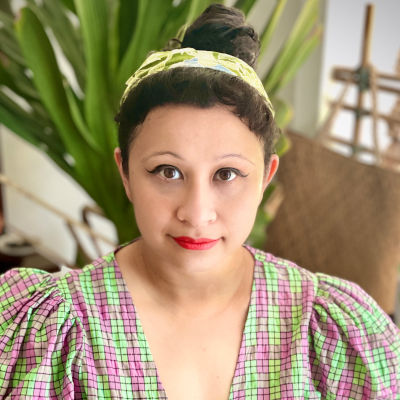
Zarina Muhammad
Panelist
Zarina Muhammad is an artist, educator and researcher whose practice is deeply entwined with a critical re-examination of oral histories, ethnographic literature and other historiographic accounts about Southeast Asia. Working at the intersections of performance, installation, text, sound, moving image and participatory practice, she is interested in the broader contexts of ecocultural identities and interactions, indigenous ontologies and the cultural translations within myth-making. Zarina has widely exhibited her work and has presented and been involved in collaborative research projects across Asia Pacific and Europe.
Moving Earth, Crossing Water, Restless Topographies: Lessons on Threshold Crossing and Wayfinding alongside Non-Human Collaborators
For this sharing, Zarina will reflect on the processes and pathways undertaken in recent selected projects namely <earth, land, sky and sea as palimpsest>, Dioramas for Tanjong Rimau, Breathing in Unbreathable Circumstances and Moving Earth, Crossing Water, Eating Soil. These works have emerged from her long-term research project that engages with environmental histories, extractive capitalist urbanisation, and archival fragments in order to redraw hegemonic cartographies and seek out a more-than-human multidimensional understanding of our place in the world.
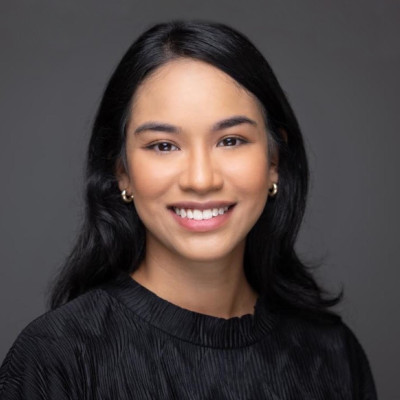
Shireen Marican
Panelist
Shireen Marican is a cultural manager, systems thinker and educator motivated to advance the engagement of culture with people, institutions and organisations for a just and equitable environment and society. She has extensive experience managing projects and research that engage deeply with the community and contemporary discourse, to find effective ways of adapting languages and actions across a variety of stakeholders. She weaves intercultural and interdisciplinary perspectives through her work as a Strategic Business Consultant with Desire Lines and an Adjunct Lecturer with LASALLE, University of Arts Singapore to co-create strategy and practice to build resilience towards global critical and social issues.
Nature as a Stakeholder in Participatory Research
Accelerating global issues and phenomenons have necessitated cultural and social reframes of historic conventions like growth and development to reconsider human wellbeing and psychology. These ideas have largely propagated across nations since the beginning of the last century leading to the rise and proliferation of human-centredness in research and strategy in art, design and adjacent creative fields. Yet, this elevation of human life priorities over all other living beings further exacerbates the intensity of global issues and phenomenons, especially those that directly impact natural capital, other species and the environment. This research examines nature as a stakeholder in "public engagement" using frameworks for participatory research for creative community projects.